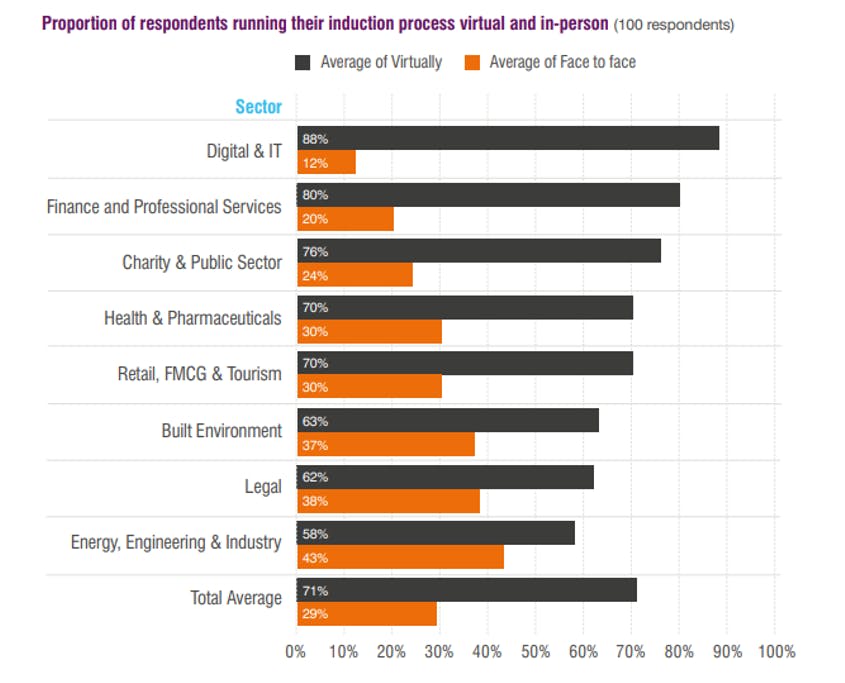What new trends can we see emerging in graduate development as we move into a post-pandemic workplace? Nicola Thomas, head of research at Institute of Student Employers, investigates…
The pandemic changed employers' view on graduate skills
In the ISE's Development Survey 2022, one out of three employers reported that they had changed their skill requirements as a result of the pandemic. In particular, employers were more focused on hiring graduates based on 'soft' skills this year with resilience, adaptability, self-motivation, and confidence being reported as more important by employers in a post-pandemic workplace. There also seems to be a larger consensus around what skills are needed by graduate hires this year compared to last.
Across the board, employers rated skills such as business-appropriate communication as being weaker among early-career hires in 2022.This is unsurprising given the lack of opportunity for student work experience during the pandemic. This, coupled with a shift to virtual learning at most universities, means graduates have had less opportunity to develop work specific soft skills, such as communication, than they had in previous years.
However, we did see a strong trend in the 2022 survey indicating that employers typically expected less from their graduate hires this year. This speaks to a sector-wide awareness of the limited opportunities graduates have had for skills development during the pandemic. It's also an encouraging sign that employers have a realistic view of what abilities they can expect from their recent early-career hires in 2022.
Having limited access to the senior management team makes the opportunity for skills development through mentoring more important.
A strong shift towards one-on-one learning and mentorships
One of the strongest new graduate development trends for this year is the rise of one-on-one tutoring and graduate mentoring. Interestingly, we also saw a significant drop in employers that included leadership engagement as part of their development approach. In the previous year leadership engagement was reported as one of the most used approaches to graduate development. Graduates having less office based interactions during their development, and doing more remote work, seem to be one of the reasons for not having as much interaction with the senior leadership team. Having limited access to the senior management team makes the opportunity for skills development through mentoring more important. Lack of interaction with senior leaders limits graduates visibility inside the organisation and decreases the opportunities they have to see leadership being 'modeled' directly by leaders in their organisation.
Meanwhile, 37% of organisations also reported that they were spending less on graduate development this year. It is important to ensure that the temporary reduction in development spending we've seen during the pandemic does not become a permanent de-investment by organisations of their early-career development programmes. Encouragingly, this was still a slight increase in spend compared to last year, meaning we can put a lot of the decrease in spend down to the reduction in cost for organisations performing more of their development activities remotely.
Remote delivery of development activities is still going strong
Across all sectors the ISE found that virtual onboarding is still a popular choice when welcoming new graduates. Employers reported that they still conducted remote onboarding 71% of the time. However, the amount of onboarding that was done virtually varied across sectors. For example, the Digital & IT sector conducted virtual onboarding 88% of the time, while in the Energy, Engineering & Industry sector only 58% of induction was done virtually for new graduates. This speaks to the different nature of tasks across sectors, some of which lend themselves more towards virtual learning. For example, jobs in engineering and the energy sector often requiring more manual skills that may be better taught in person.

Still, the majority of employers believe that virtual onboarding does not affect the quality of their graduate onboarding. Only 22% believe it negatively affects the quality of their graduate induction. However, 16% of responders believed that virtual onboarding has actually improved their graduate induction. Some of the positive features associated with moving to virtual onboarding included the opportunity to update induction content, ability to perform more creative activities, and less travel time for graduates.
The rise of agile recruitment
A new trend for this year is that shift towards a more agile recruitment process for graduate hires. Prior to this year almost 80% of organisations ran formal development programmes. However, this year we're seeing a much larger push towards hiring graduates continuously throughout the year instead. This allows organisations to fill positions and find talent when it's needed rather than conducting all graduate hires at the same time. Considering the average graduate development programme lasts 25 months, this new agile approach to graduate recruitment allows employers to find the right graduate skills when available and allows for more flexibility in skills development rather than organisations being bound by an arbitrary timescale for their early-career hires.
Apprenticeships are becoming more common
The ISE development survey 2022 found that 87% of employers had hired apprentices in 2022. On average organisations were spending 47% of the apprenticeship levy - this is the highest ever average spend reported by the ISE. This indicates that hiring apprentices is a strong new trend for 2022. The largest uses of the apprenticeship levy was in the Energy, Engineering & Industry sector, using an average of 70% of the levy. Meanwhile 17% of organsations also deliver their own apprenticeship programme as an employer provider. Most organisations did not include graduates in their apprenticeship schemes, although one exception was the Finance & Professional Services sector where 40% of their graduates were on an apprenticeship programme.
Was this page useful?
Thank you for your feedback
